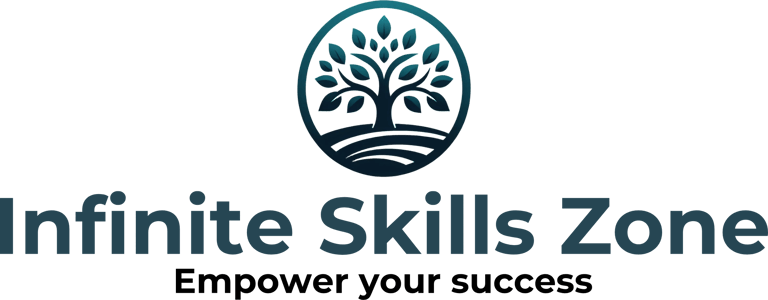How to Start a Blog and Make Money Online – A Beginner’s Guide
9/8/20254 min read


Understanding Blogging Basics
A blog is essentially an online platform where individuals or organizations publish content regularly, often in the form of posts or articles. This form of digital communication allows for a wide range of topics, making it an accessible outlet for sharing ideas, opinions, and expertise. The fundamental types of blogs include personal blogs, professional blogs, niche blogs, and corporate blogs, each serving different purposes and audiences. Personal blogs typically focus on sharing an individual's experiences, while professional blogs aim to establish authority in a specific field.
Choosing a blogging platform is one of the first steps in starting a blog. Numerous platforms are available, such as WordPress, Blogger, and Squarespace, each with unique features that cater to different needs. WordPress, for instance, is highly customizable and popular among professional bloggers, whereas Blogger offers a more straightforward setup for beginners. Selecting the right platform is crucial as it can significantly affect the functionality and aesthetic of the blog.
Another vital aspect of blogging is niche selection. A niche defines a specific topic area around which a blog is focused, helping to streamline content creation and appeal to a target audience. By pinpointing a niche, bloggers can generate targeted content that resonates with readers, which is critical for building a loyal following. Understanding the target audience involves identifying their interests, demographics, and needs, allowing bloggers to tailor their content effectively.
Distinguishing between personal and professional blogging is also essential. While personal blogging can offer more freedom in terms of content and style, professional blogging typically includes a structured approach to content creation, emphasizing monetization and audience engagement. Beginners should carefully consider their objectives and decide where to channel their efforts, tailoring their blogging strategy to meet their goals effectively.
Setting Up Your Blog
Establishing a blog is a pivotal first step in your journey to make money online. The initial phase involves selecting a blogging platform that suits your needs. Popular options include WordPress, Blogger, and Wix. WordPress, in particular, is favored by many bloggers due to its flexibility, extensive customization options, and a broad array of plugins that can enhance functionality. If you prioritize ease of use over advanced capabilities, platforms like Blogger or Wix might be more suitable for you.
After choosing a platform, the next crucial step is selecting a domain name. Your domain name serves as your blog’s online identity and should reflect your content's theme while remaining memorable. Keep it concise and avoid complex terms to ensure easy accessibility for your readers. Once you’ve finalized your domain name, the next step is to find a reliable hosting service. Popular hosting providers such as Bluehost or SiteGround offer various plans catering to beginners. They ensure that your blog has a professional foundation, with dependable uptime and customer support.
The design and user experience of your blog play a substantial role in retaining visitors. Selecting an appropriate theme is essential; many blogging platforms come equipped with free and premium templates that are easy to customize. Use these themes to enhance your blog’s aesthetic while ensuring it is user-friendly. Consider simple navigation features that help your audience easily find information. In addition to the homepage, creating essential pages such as 'About' and 'Contact' is vital. These pages not only establish your blog's credibility but also foster trust with your audience, making them more likely to engage with your content.
Creating Engaging Content
Creating high-quality content is paramount for attracting and retaining readers in the competitive world of blogging. Engaging content encourages visitors to stay longer on your blog, explore different sections, and ultimately share your posts across various platforms, extending your reach. The diversity of content types—ranging from articles and videos to podcasts—allows you to cater to varied audience preferences. Each format holds unique advantages; for instance, videos can effectively convey messages in a more dynamic manner, whereas written articles provide in-depth information with the potential for intricate detail.
Brainstorming blog post ideas is an essential part of the content creation process. To generate compelling content, consider utilizing brainstorming techniques such as mind mapping, free writing, or even drawing inspiration from trending topics within your niche. Conducting keyword research can help you identify popular subjects that resonate with your audience while also benefiting your blog's SEO strategy. This, in turn, enhances visibility and helps attract more traffic to your site.
Crafting compelling headlines is equally crucial, as the headline often serves as the first interaction potential readers have with your content. A strong headline should pique curiosity while accurately representing the content within. Utilizing power words, posing questions, or suggesting a benefit can make your titles more enticing. Additionally, integrating SEO techniques ensures your content ranks higher on search engine results pages, leading to increased visibility.
Incorporating images and multimedia can further enhance your posts. Visual elements not only break up text but also aid in conveying information more effectively and maintaining reader interest. Consistency in publishing should not be overlooked; regularly updating your blog with fresh content keeps your audience engaged and encourages them to return for more. By maintaining a steady flow of engaging, high-quality content, your blog's growth and success can be significantly enhanced.
Monetizing Your Blog
Monetizing your blog is a crucial element in transforming your passion for writing into a source of income. This section delves into various strategies that can effectively generate revenue from your blogging efforts. One popular approach is affiliate marketing, where bloggers earn commissions by promoting products or services through unique links. By recommending items that resonate with your audience, you not only provide value but also create an opportunity for financial gain.
Another method to consider is sponsored posts, which involve collaborating with brands to create content that promotes their offerings. These partnerships can be lucrative, particularly when your blog has established credibility and a loyal readership. It is essential to choose brands that align with your values to maintain authenticity and keep your audience engaged.
Additionally, selling your products or services directly on your blog can be an effective monetization strategy. Whether you offer e-books, online courses, or merchandise, providing your audience with tangible products can significantly increase your revenue. Ensure that these offerings meet the needs and preferences of your audience to maximize the chances of conversions.
Displaying ads through platforms like Google AdSense can also facilitate income generation. By embedding advertisements on your blog, you can earn money based on impressions or clicks, depending on your traffic volume. It is important to balance the integration of ads with user experience to prevent overwhelming your readers.
Building an email list is an essential step in driving traffic and revenue growth. By engaging with readers through newsletters and exclusive content, you can nurture relationships and encourage return visits. Complementing this with a robust marketing plan is vital to sustaining traffic to your blog. By implementing these monetization strategies effectively, you can embark on a successful journey towards financial independence through blogging.
Success
Empowering you with digital products for growth.
Innovation
Access
© 2024. All rights reserved.
